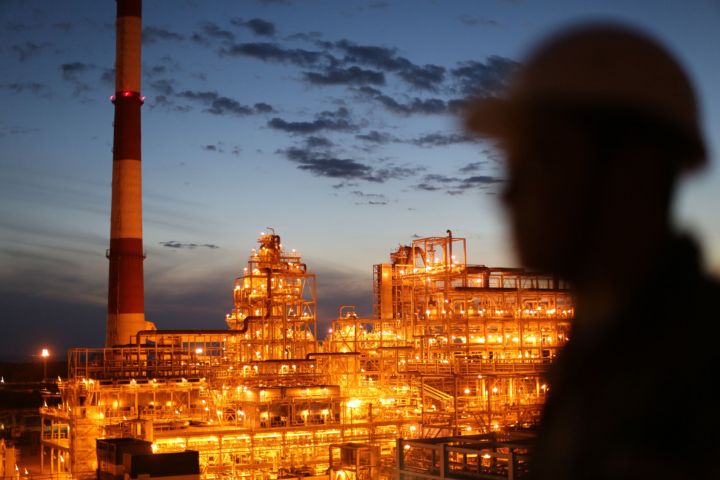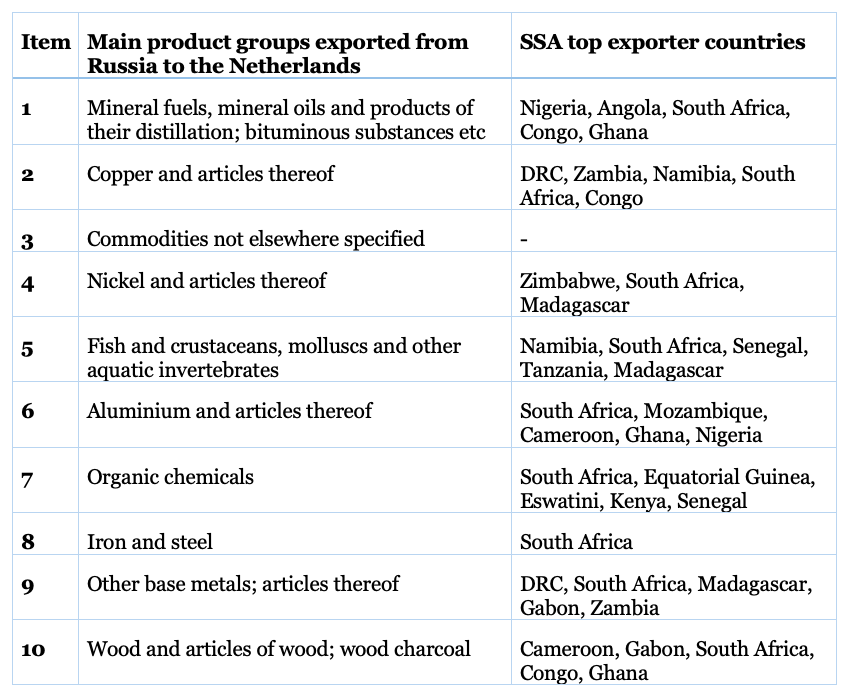WAR IN EUROPE OP-ED
For Europe’s sanctions against Russia to be really credible, the EU should switch to Africa for its commodities supply

African countries can help EU countries to reduce and even stop buying Russian goods that help finance that country’s war machine. This is because much of the EU’s imports from Russia consist of low-value-added commodities of which African countries have plenty.
Russia’s invasion of Ukraine is marked by several stark incongruities. For one, Russia is the world’s largest country, nevertheless, it seeks to expand its territory, moreover violently.
Two, Nato, which dwarfs Russia militarily — spending at least 12 times as much on its defence — is nevertheless pinned down impotently, having become a mere spectator to the largest conflict in Europe since World War 2.
Third, the EU’s virtually sole measure to try and stop the invasion of Ukraine is to impose economic sanctions against Russia and its elites, incurring a large cost on itself in the process, including through rising energy and food prices. Europe is dependent on imports of Russian gas — buying around 41% of its gas from Russia. The costs of these sanctions come on top of the two-year costs of Covid-19 lockdowns, of multiple refugee crises, the still-lingering consequences of the global financial crisis, and the accumulating costs of climate change.
Clearly, if expensive sanctions fail to bring Putin to withdraw his troops within a reasonable period, both Europe and Nato, not to mention the people of Ukraine, will have suffered a serious strategic defeat in the geopolitical sphere. This remains a very real scenario, considering that experts are mixed on the efficacy of sanctions in general.
Threats of sanctions did nothing to dissuade Putin from war. Putin may have good reasons to be dismissive of the potential impact of sanctions and/or the ability and willingness of Europe to enforce these. Sanctions against Russia after the invasion of Crimea in 2014 were “riddled with loopholes and compromises”. Putin may even welcome economic sanctions, as it may cause a “siege morality” and help by “mobilising people, thereby contributing to the growth of domestic productive sectors.”
In any case, Russia had prepared long for both combat and sanctions. It is unlikely to run out of ammunition soon despite the apparent dilapidated state of its army — in any event not before the government in Ukraine falls.
For the current set of sanctions to make it too costly for Russia to continue its invasion and occupation — and to send out a signal to deter other countries from aping Russia’s behaviour in future — it needs to be credible. In other words, the imposition and maintenance of sanctions must be in Europe’s own interest. This is where trade with Africa comes in. African countries can help EU countries to reduce credibly and sustainably, and even stop buying Russian goods that help finance the country’s war machine. This is because much of the EU’s imports from Russia consist of low-value-added commodities of which African countries have plenty.
To illustrate our argument, consider the case of the Netherlands. The Netherlands is absorbing nearly 10% of Russian exports. If the Netherlands could credibly redirect its imports from Russia to other countries, this would be a significant source of leverage and cost on the Russian economy. Russian direct merchandise exports to the Netherlands consists (2019 figures) of mineral fuels and oils and products of their distillation (76%) and commodities such as copper, nickel, aluminium, steel, and articles (12.2%) thereof as well as fish and crustaceans (2.3%).
Instead of buying these from Russia, the Netherlands may import these from Africa — Table 1 indicates the products and the possible alternative source country in Africa.

Table 1: Alternative, SSA Sources of Imports for the Netherlands. Source: Calculated based on reported trade statistics (averages 2019 & 2020) obtained from the ITC Trade Map (accessed 2022-02-25)
While some of these industries may require investment injection into some of these sectors’ production capacity to get to the volumes required by the Netherlands, this shift in imports would ultimately be in the Netherlands’ (and Europe’s) interest. At a potential value of more than $44-billion (2019) (which is about nine times the value of the Netherlands’ total foreign aid), not only will it give a needed demand boost to African economies, beneficial to recover after the ravages of the Covid-19 pandemic, but it can also divert some of the growing trade between Africa and China, even lessening China’s growing influence in Africa.
In sum, aiming to import fewer commodities from Russia makes sense both in terms of strategic EU-China-Africa trade considerations, as well as the EU’s development aid perspective. A huge contribution that African countries can make to help Ukraine is to help ensure that EU sanctions can be credibly carried out by exporting to it the critical commodities mentioned.
South Africa in particular, can try to make up for its refusal to condemn the Russian invasion of Ukraine by stepping up its supplies of mineral fuels, copper, nickel, aluminium, iron and steel, base metals and others to the EU. DM
Wim Naudé is Professor in Economics at University College Cork, Ireland and Distinguished Visiting Professor at the University of Johannesburg, South Africa. He is also a Fellow of the African Studies Centre at Leiden University in the Netherlands and Visiting Fellow at RWTH Aachen University in Germany. His work is concerned with technological innovation, trade and sustainable development, with a focus on using data science.
Dr Martin Cameron is the managing director of Trade Research Advisory (PTY) Ltd, a spin-out company of North-West University in South Africa. He is a quantitative economist specialising in Quantitative Executive Decision Support modelling and strategy development, Economic Impact Analysis and Engineering Management Decision Support. He is a founding co-director of AEXI — Advanced Export Intelligence BV, a Netherlands-based and Climate KIC-supported start-up that uses big data analytics to promote trade in environmental goods.


















 Become an Insider
Become an Insider
A very economically sound and logical article that Angela Merkel would have done well to read before she threw Germany’s entire economy at the mercy of Russian oil.
Europe & Africa can be logical trade partners on many levels, and it is high time that Africa, the EU, Britain and other interested parties were meaningfully talking.
Africa has a horrifying unemployment problem and these types of investment are exactly the sort to improve meaningfully, unemployment levels.
Cyril, pick up the phone and do something useful!